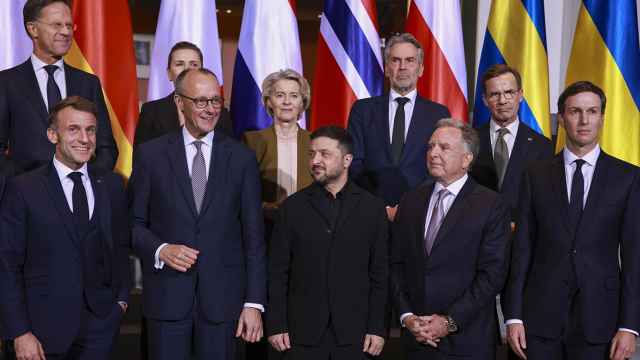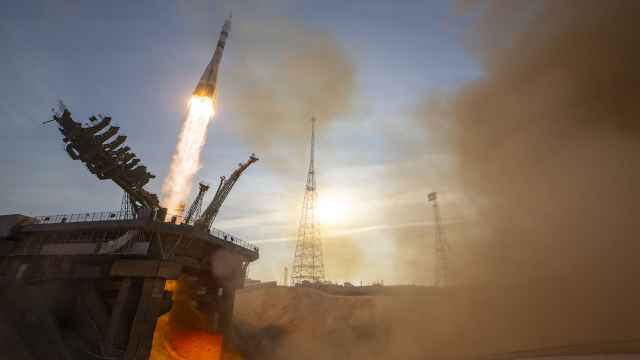Kazakhstan authorities acknowledged Wednesday that an Islamist insurgency has spread to the republic from the North Caucasus, fueled by restrictions on religious freedom in the country.
Kazakhstan's Prosecutor General's Office in a statement that the twin blasts in the city of Atyrau last week were the work of a terrorist group called Jund al-Khilafah, or Soldiers of the Caliphate.
The Soldiers claimed responsibility for the double bombing shortly after the attack, but until Wednesday Kazakh authorities denied that such a group existed.
The two explosions ripped through Atyrau — a city of 197,000 people, some 2,500 kilometers west of the capital Astana — on Oct. 31. The only casualty was an alleged bomber, Baurzhan Sultangaliyev, 23.
Though largely unsuccessful, the bombings made ripples because Atyrau houses offices of many global oil companies, including ENI, Tengizchevroil and ExxonMobil.
The bombings were retaliation against the legislative crackdown on religion mounted by Kazakhstan's secular-minded authorities, the group said in a statement circulated on Islamist web sites at the time.
New legislation, adopted in October, bans prayer rooms in state buildings and requires missionaries to obtain state registration and renew it every year. The bills were introduced by President Nursultan Nazarbayev, who presented them as an anti-extremism measure.
The group's existence was confirmed after three members of Soldiers of the Caliphate were arrested last week, prosecutors said, adding that they confessed to wrongdoing.
The suspects also indicated that the botched attacks were not suicide bombings. The sole victim, Sultangaliyev, died because he allegedly mishandled one of the explosive devices on his way to the target.
The four, including Sultangaliyev, formed an improvised terrorist cell in 2009 and were "inspired by the ideas of jihadists, including well-known extremist [leader] Said Buryatsky, who was killed in the North Caucasus," prosecutors said.
In September, they joined Soldiers of the Caliphate, which had been formed this summer by three other Kazakh radicals now fighting allied forces in Afghanistan as part of the local Islamist insurgency, prosecutors said. The three remain on a wanted list.
Buryatsky, an ethnic Russian — born Alexander Tikhomirov — was a convert to radical Islam and, for a time, one of the most notorious leaders of North Caucasus militants. A skilled bomber, he is considered the mastermind of the 2009 blast that derailed the Nevsky Express train on the way from Moscow to St. Petersburg, killing 26.
Buryatsky was linked to several other bombings before agents of the Federal Security Service shot him dead in March, earning him the title of "martyr" with his supporters. He was 28.
Kazakhstan presents itself as a terrorism-free country and a bastion of stability, but since May it has seen several attacks and shootings that have claimed almost two dozen lives.
A Message from The Moscow Times:
Dear readers,
We are facing unprecedented challenges. Russia's Prosecutor General's Office has designated The Moscow Times as an "undesirable" organization, criminalizing our work and putting our staff at risk of prosecution. This follows our earlier unjust labeling as a "foreign agent."
These actions are direct attempts to silence independent journalism in Russia. The authorities claim our work "discredits the decisions of the Russian leadership." We see things differently: we strive to provide accurate, unbiased reporting on Russia.
We, the journalists of The Moscow Times, refuse to be silenced. But to continue our work, we need your help.
Your support, no matter how small, makes a world of difference. If you can, please support us monthly starting from just $2. It's quick to set up, and every contribution makes a significant impact.
By supporting The Moscow Times, you're defending open, independent journalism in the face of repression. Thank you for standing with us.
Remind me later.





